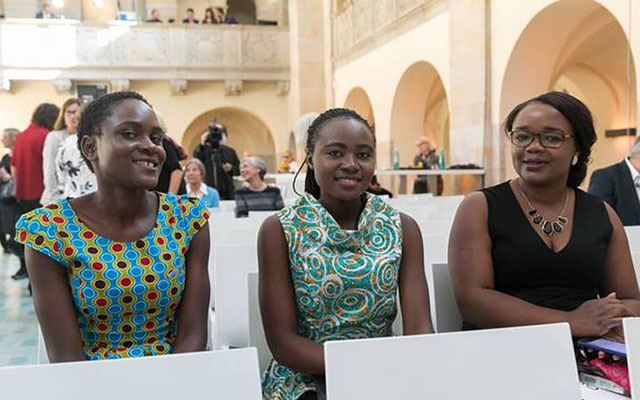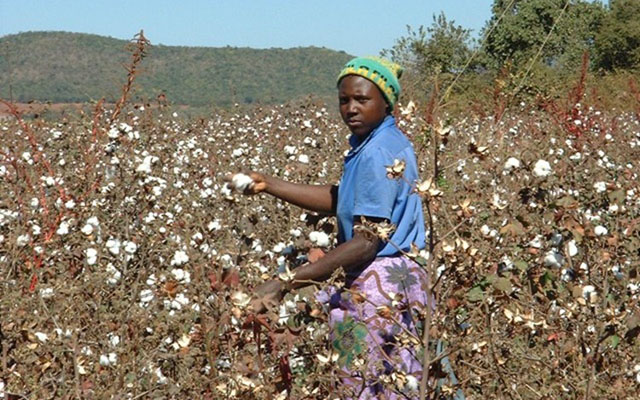Educating girl child can help end poverty

Runyararo Muzavazi & Tatenda Charamba
For Masline Gapiko (20), a young law student from Epworth, one of Harare’s poorest suburbs, educating girls and young women is a necessary investment for a peaceful and poverty-free world. She firmly believes that giving girls equal access to quality education can help lift them from the burden of poverty.
“Early marriage is not a solution to poverty,” she says. “Education gives girls and young women the freedom to make decisions to improve their lives. Education can empower these girls to have a say over their life choices by giving them the confidence to speak up for their rights and demand a chance to pursue their studies.”
For her, growing up in Epworth has not been easy. In Epworth, sexual abuse and early child marriages are rampant. Many girls drop out of school and enter into child prostitution. Masline’s mother and father divorced when her mother was four months pregnant. She says she was raised by her grandparents. After the death of her grandfather the burden of her upbringing fell in the hands of her grandmother. Poverty emboldened her in one way or another. Masline persevered through her difficulties and was determined to find a way out.
“Due to economic hardships many families let their children turn into prostitutes and thieves just to earn a living but my grandmother and I would sell fruits and vegetables. We also went around the community doing piece jobs. The money we got from selling vegetables was not enough. I nearly dropped out of school as my grandmother couldn’t afford the fees,” she says.
Joining a girls empowerment club at Epworth High School opened her life to opportunities. She learnt a lot from the club which was supported by PLAN International, an NGO that runs girl child empowerment programmes.
“I managed to enrol for my Form One in 2011 at Epworth High and was selected to be an ambassador for PLAN International. To be an ambassador one had to have humble origins and academic excellence,” says Masline who is now studying for a law degree at the University of Zimbabwe. Most of my school fees was paid for when I became an ambassador.”
The Girls Empowerment Club is an initiative by PLAN International which aims to empower girls to advocate for their rights using various media channels, ensuring that their voices are heard beyond their communities.
“This exposure gave me a platform to express myself unlike before when we were forbidden to speak in public because of our backgrounds,” says Masline.
Through the programme she managed to meet high profile people such as Police Senior Assistant Commissioner Charity Charamba and many others.
Masline has participated in numerous girl child empowerment programmes and has received support from well-wishers to enable her to finish her studies. She is now a beneficiary of the Joshua Nkomo Scholarship.
“Meeting people such Charity Charamba has inspired me to move forward and work hard to better my life,” she says. “I learnt a lot from networking.”
Masline’s determination and hard work have won her praise and recognition.
“Despite the fact that I come from one of the poorest suburbs in Harare, I managed to go to Berlin, Germany, on September 28 this year to receive a special prize of the Ulrich Wickert Award in the Children and Youth Media Project category on behalf of Epworth High’s Girls Empowerment Club,” she says.
“I am currently studying for a degree in Law at the University of Zimbabwe. I wanted to study media but I couldn’t because of lack of money.”
Moving on to university did not detach Masline from the club.
“I still play a critical role in the club despite the fact that I am no longer a student at Epworth High School. I am currently the advisor and public relations officer of the club,” she said.
She has become a beacon of hope and inspiration.
“I want to advise all boys and girls not to let society define who they are. Living in a society full of negativity should not hinder one from going for what they want. In Africa when a country is hit by economic constraints people believe part of the solution is marriage which has resulted in the escalation of child marriages. It should be noted that marriage is not a solution to poverty, as such the more you delay the better. One should first gain independence so that they do not entirely depend on their spouse,” says Masline.
After passing her A-Levels with 19 points, she enrolled for a law degree at UZ with financial support from Joshua Mqabuko Scholarship Trust. PLAN International spokeswoman Grace Mavhezha said their organisation’s main was to empower girls.
“We aim to empower girls through providing them with education, exposing them to role models so that they can be confident and assertive, encouraging them to delay marriage so that they can make their own choices making sure that they speak out on issues affecting them,” said Mavhezha.
Plan International has an initiative termed “Because I am a Girl” which supports the youth-led global movement for girls’ rights and gender equality. Across the world girls suffer injustices everyday simply because they are young and female.
“Through this initiative we support girls to take the lead and influence decisions that matter to them. We take action and campaign for girls today so they have the power to transform their futures,” Mavhezha says.
Girls are vulnerable and need education to prevent teenage pregnancies, violence, child marriages, peer pressure, drug abuse and prostitution. According to the UN, there are nearly 600 million girls aged 10 to 19 in the world today, each with limitless individual potential. However, the global agency says, they are disappearing from public awareness and the international development agenda.
Experts say between inequities in secondary education to protection issues, adolescent girls are uniquely impacted and should benefit from targeted investments and programmes that address their distinct needs. They further say that investing in adolescent girls can have a huge ripple effect to create a better world by 2030.
“Education, I think, can make a difference to a girl child,” Masline says.
“Early marriage is not the answer to today’s challenges; education is.”











Comments